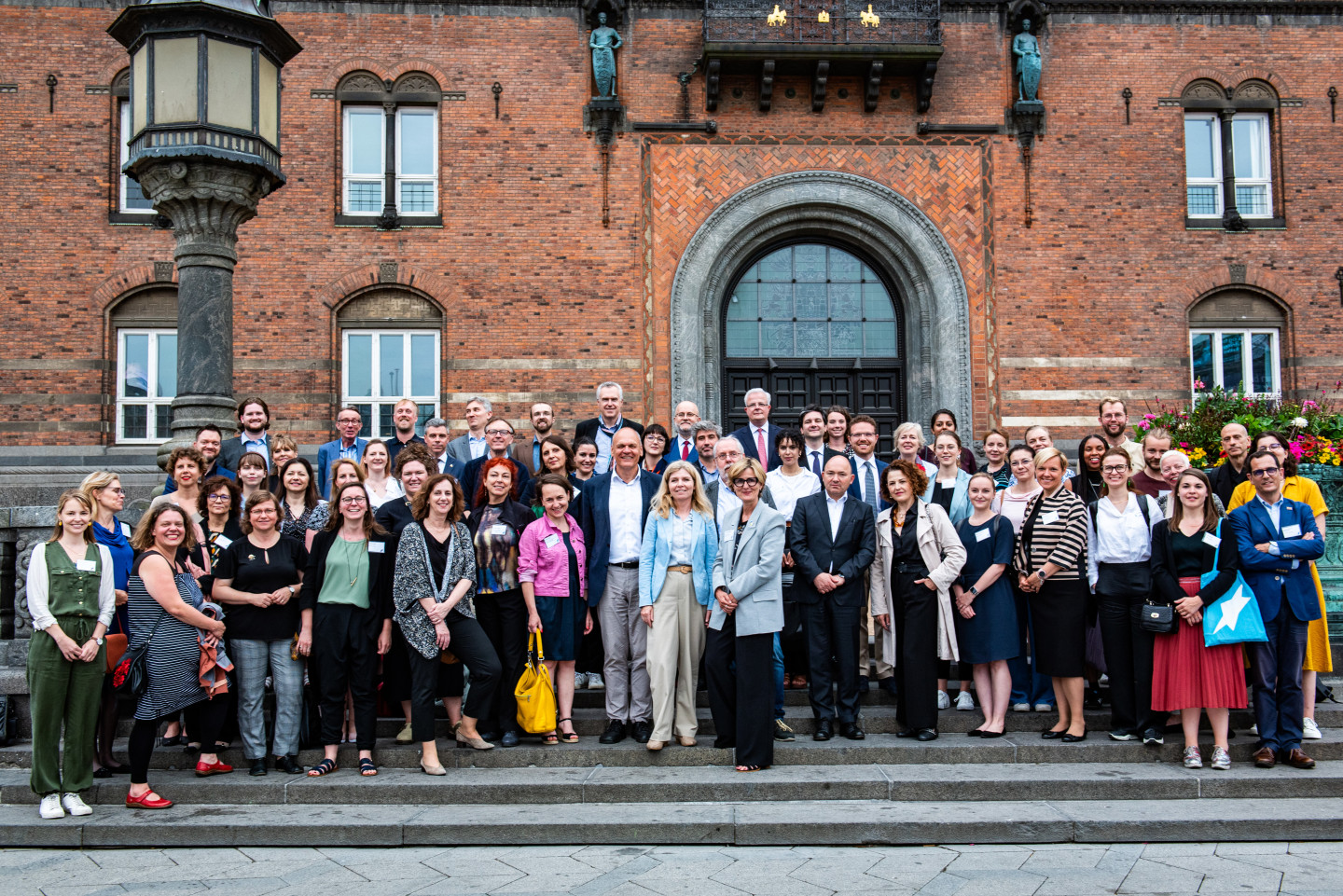
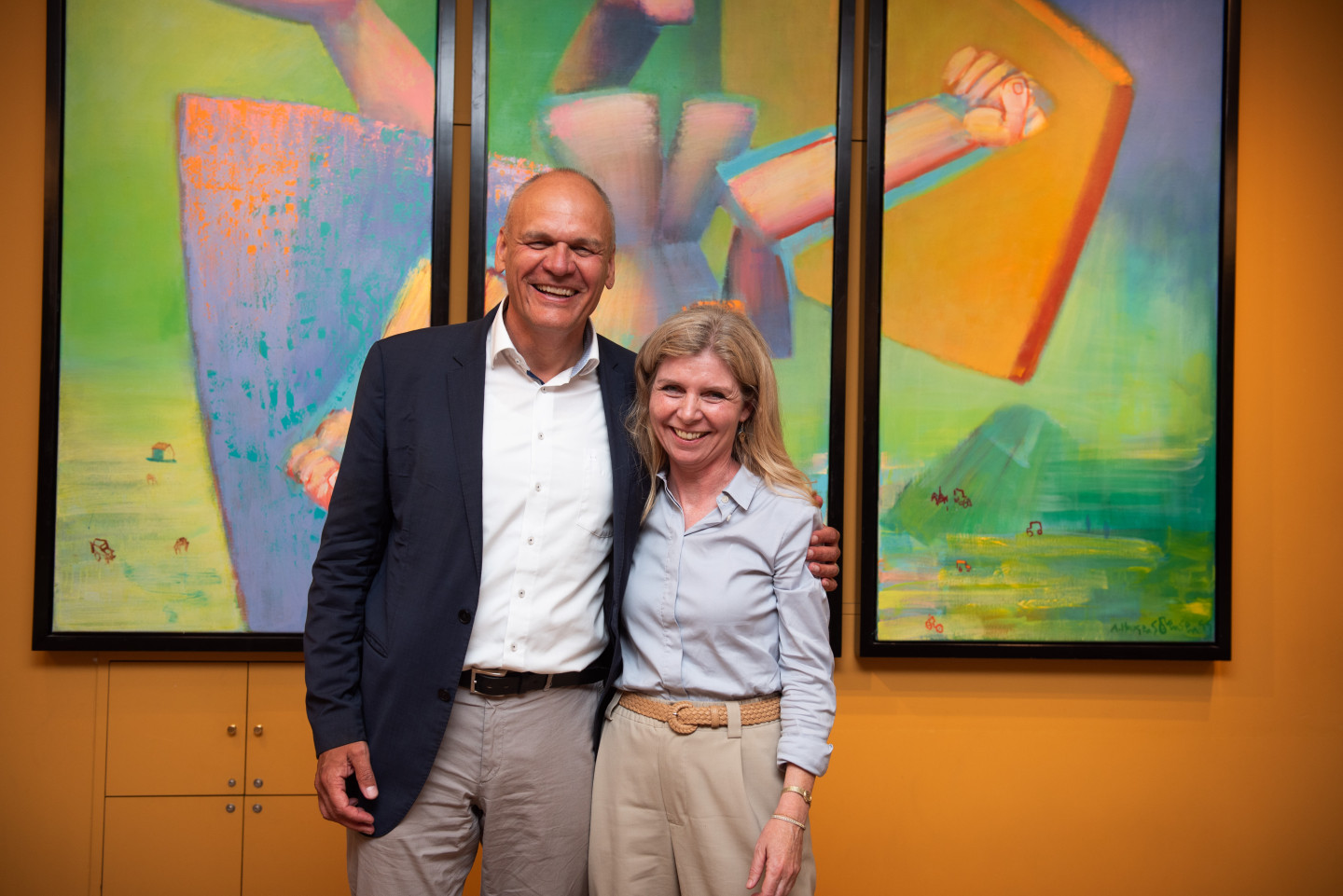
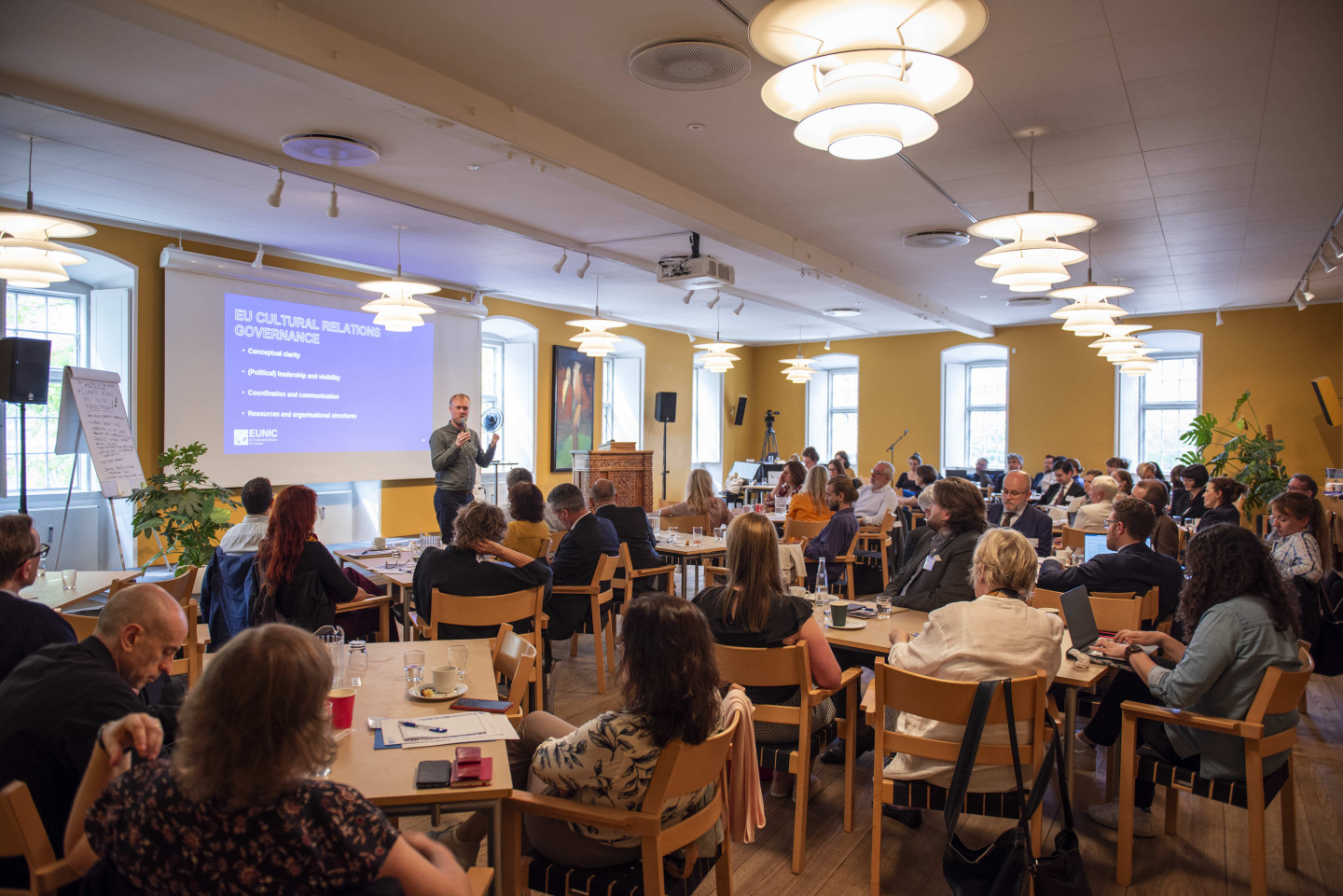
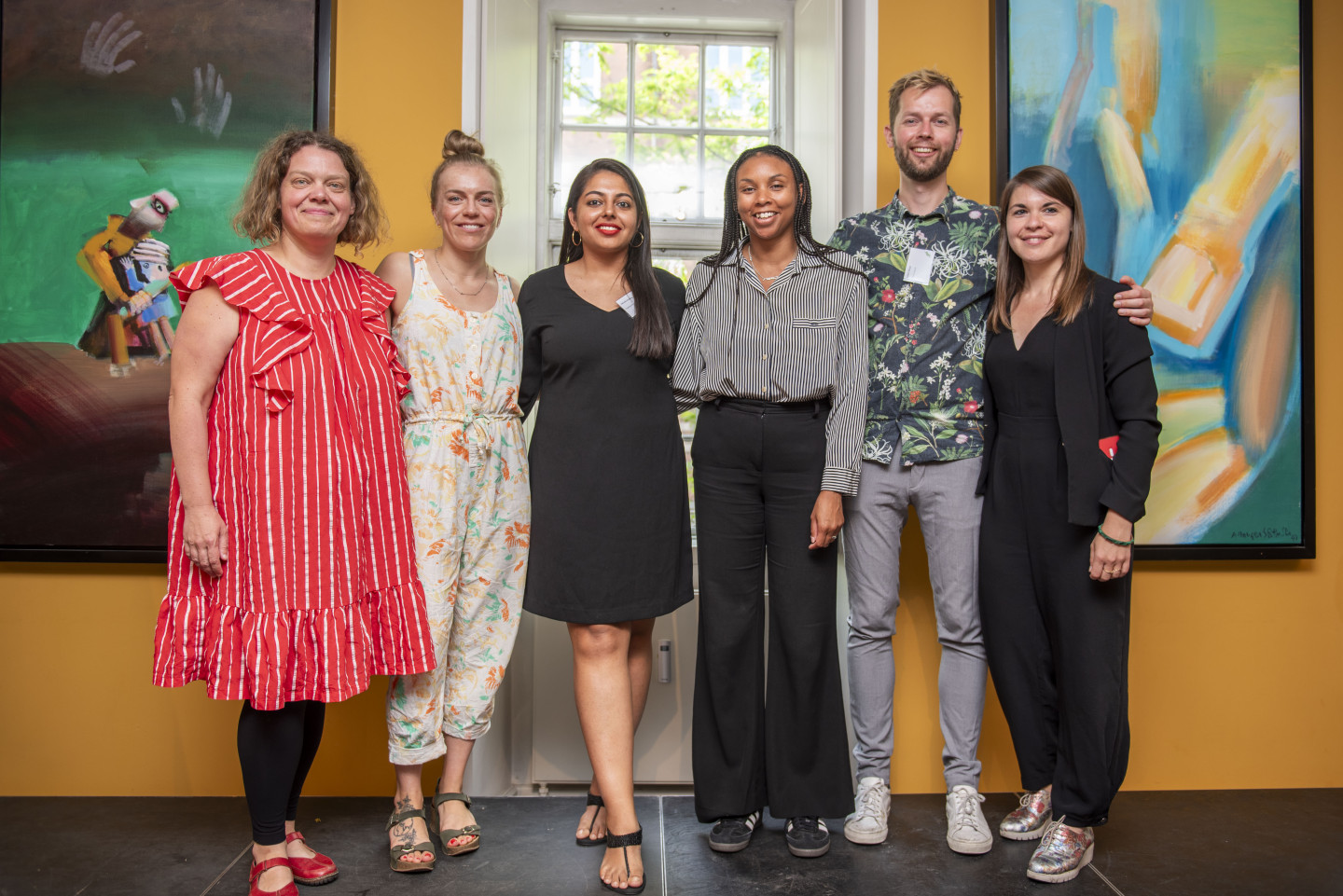
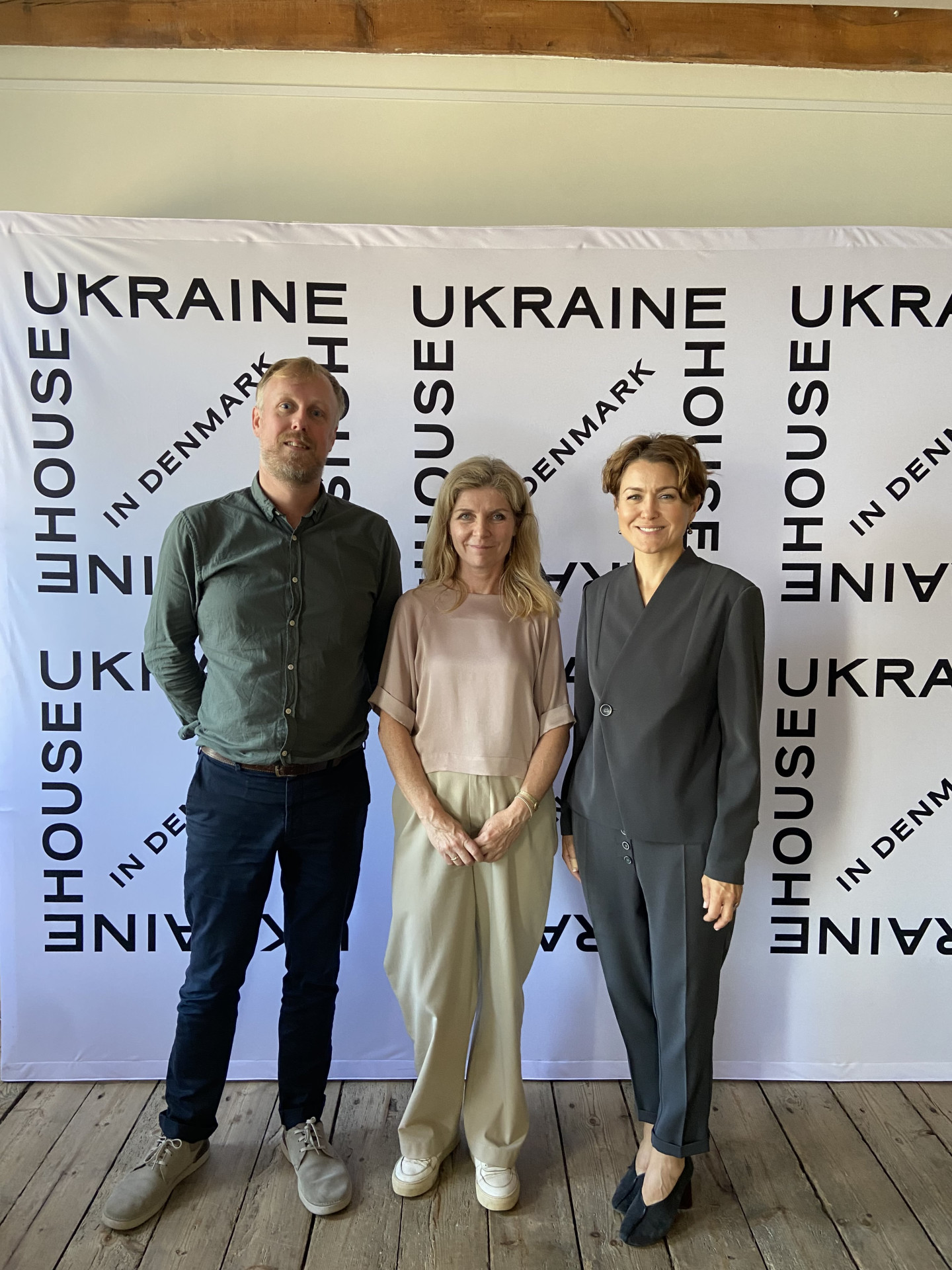
EUNIC General Assembly in Copenhagen
On 29 and 30 June, the EUNIC General Assembly was hosted by the Danish Cultural Institute in Denmark. The network welcomed the new presidency of Camilla Mordhorst from the Danish Cultural Institute and two new EUNIC Clusters in Indonesia and Côte d'Ivoire. Joined by a group of participants from the EUNIC Climate Culture(s) Creative Lab, the network engaged in a discussion on the role of cultural institutes for collective climate action.





EUNIC Board of Directors update
This General Assembly marked the start of the EUNIC presidency of Camilla Mordhorst, CEO of the Danish Cultural Institute. Ondřej Černý, Director General of Czech Centres, was elected as Vice-President whereas outgoing President Johannes Ebert, Secretary-General of the Goethe-Institut, was voted for a second term, now as ordinary member of the Board of Directors.
The role of culture in EU communication strategies
The opening address by Pia Ahrenkilde Hansen, Director-General for Communication at the European Commission, addressed the importance to integrate culture in EU policies, including its communication strategies. Looking ahead at elections to the European Parliament and a new European Commission coming up in 2024, Pia Ahrenkilde Hansen emphasised that while culture is integral to bring the EU together as a community, strong communication strategies are needed to overcome barriers. Shortly after the General Assembly it was announced that Pia Ahrenkilde Hansen will become the new Director General of the Directorate-General Education, Youth, Sport and Culture at the European Commission.
Cultural relations and climate action
Prior to the General Assembly in Copenhagen, the EUNIC Climate Culture(s) Creative Lab took place in Berlin from 23 to 28 June. As part of Goethe-Institut’s presidency of EUNIC in 2022-2023, the Lab brought to life new collaborations among EUNIC members on environment, climate, and culture and to support emerging leadership in these topics. Gathering 31 participants from 19 EUNIC member organisations, the programme in Berlin was collaboratively developed between EUNIC and Goethe-Institut together with the participants and built on three preparatory online meetings. With the support of two external partners, namely Julie's Bicycle and Social Impact, the participants learned about, exchanged and produced work on the topic of environment, climate and culture.
Alison Tickell, founder and CEO of Julie’s Bicycle, gave an introductory keynote address on the core role of culture to address the climate crisis. While climate diplomacy is increasingly failing as the need to talk about inequity, migration and conflict rises, cultural relations practices in particular can be a crucial and meaningful tool for climate action. Hence, the collaboration with the EUNIC network is a great and timely opportunity.
Following the CCCLab in Berlin, a delegation of six selected participants from Goethe-Institut India, DutchCulture, the Danish Cultural Institute/Ukrainian-Danish Youth House, Institut français, the Polish Institute in Bucharest and the Finnish Institute in the UK and Ireland, travelled to Copenhagen to present the outcomes of the Lab and recommendations for the network on adopting cultural solutions to the climate crisis. Following an open discussion with network representatives about what can be done at organisational level in terms of climate action, the group shared what is needed to take next steps collectively.
These needs for next steps include increasing knowledge sharing and understanding of each other’s organisations in order to avoid overlap, a stronger understanding of the link between climate and culture, more education opportunities for the network and its partners, stronger regional connections as well as building on the strong existing climate movement and giving it more visibility. You can read more about the CCCLab here.
The Climate Crisis is a cultural crisis. As EUNIC we have the responsibility but also the ability & reach to address the climate crisis together.
Julie Arnfred Bojesen. Ukrainian Danish Youth House - Danish Cultural Institute
New EUNIC Clusters in Côte d’Ivoire and Indonesia
The General Assembly unanimously approved the creation of two new EUNIC clusters in Côte d’Ivoire and Indonesia. Both clusters set out to focus on the topics of SDGs and defending human rights as overarching priorities. Specifically to the local context, the cluster in Côte d’Ivoire also plans to target youth and the cultural and creative industries. The Indonesia cluster will place particular emphasis on activities following up recent geopolitical dynamics such as the G20 and opportunities with ASEAN. The worldwide EUNIC network now counts 139 clusters in 107 countries.
Visit to Ukraine House in Denmark
The meeting concluded with a visit to the Ukraine House in Denmark and a presentation by Director Nataliya Popovych about its purpose and activities. The organisation was set up in 2022 after the full-scale Russian invasion in Ukraine as a space dedicated to promoting intercultural dialogue, projects, and programmes between Ukraine and Denmark to foster collaboration, security, and lasting peace in Europe. In exchange with Nataliya Popovych, Solomiya Borshosh from the Ukrainian Institute shared a number of current action points the Ukrainian Institute is implementing to expand its presence in the EU and beyond. Additionally, Elke Kaschl-Moni from the Goethe-Institut in Brussels gave an update on the large-scale EU-funded project House of Europe led by Goethe-Institut, which is continuing in revitalizing the cultural infrastructure in Ukraine and broader civil society links between Ukraine and the EU.
EUNIC members were also reminded of the joint call with the European Cultural Foundation, offering grants for projects giving visibility to Ukrainian culture and artists and deepening connections within for Ukrainian cultural actors within Europe. The General Assembly closed with a guided tour through the Spaces of Dignity exhibition (in the context of the Copenhagen Architecture Festival) at the Ukraine House in Denmark.
Read the full report and conclusions of the General Assembly here.
